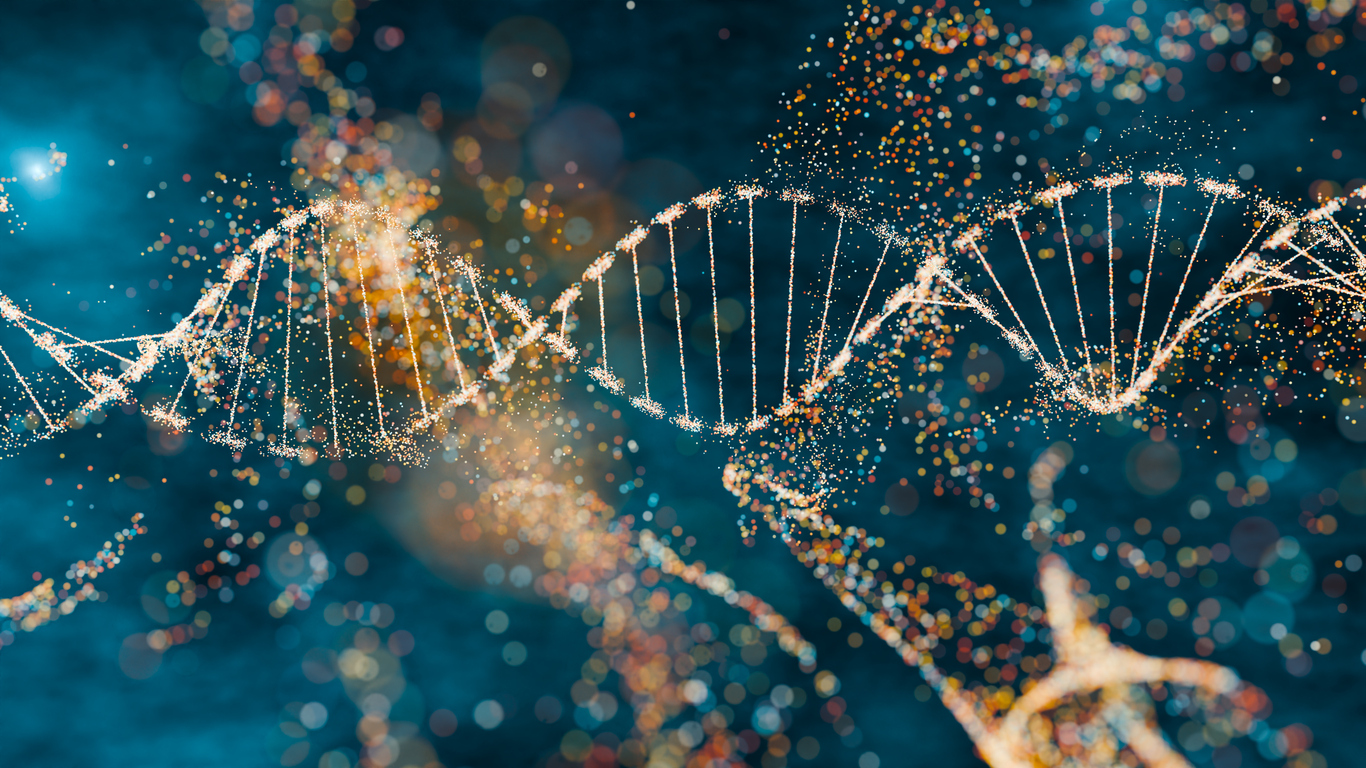
The past decade has been marked by extraordinary scientific discoveries, technological advancements, and groundbreaking research that have reshaped our understanding of the world. From deep space explorations to medical breakthroughs, these discoveries highlight the rapid pace of human achievement. Here, we’ll explore some of the most fascinating discoveries from the last ten years that have had a profound impact on science, technology, and society.
1. The First Image of a Black Hole (2019)
In April 2019, humanity saw the first-ever image of a black hole, located in the Messier 87 galaxy, about 55 million light-years away. This historic image was captured by the Event Horizon Telescope (EHT), a global network of synchronized radio telescopes. The black hole’s shadow, surrounded by a bright ring of light formed by the event horizon, provided direct evidence of the existence of black holes—one of the most enigmatic objects in the universe.
Why it’s significant:
- This achievement confirmed decades of theoretical predictions based on Einstein’s theory of general relativity.
- It opened new possibilities for studying the extreme environments around black holes and further understanding gravity.
Pro tip:
- Black holes are regions of space where the gravitational pull is so strong that not even light can escape, making them invisible—hence the importance of this image.
2. CRISPR Gene Editing Breakthroughs
Over the past decade, CRISPR (Clustered Regularly Interspaced Short Palindromic Repeats) technology has revolutionized genetic research. This powerful tool allows scientists to edit genes with unprecedented precision, offering potential cures for genetic diseases and transforming fields like agriculture and medicine.
Key developments:
- In 2020, Jennifer Doudna and Emmanuelle Charpentier were awarded the Nobel Prize in Chemistry for their pioneering work in developing CRISPR.
- Researchers are using CRISPR to correct genetic mutations that cause diseases like sickle cell anemia, muscular dystrophy, and certain types of cancer.
Why it’s significant:
- CRISPR technology has the potential to eradicate inherited genetic diseases and improve crop yields, making it a game-changer in biotechnology and medicine.
Pro tip:
- Ethical discussions around CRISPR are ongoing, as the ability to edit genes also raises concerns about genetic modifications in humans, including “designer babies.”
3. Gravitational Waves Detected (2015)
In 2015, scientists from the LIGO (Laser Interferometer Gravitational-Wave Observatory) collaboration detected gravitational waves for the first time, confirming a prediction made by Einstein over a century ago. These ripples in spacetime were caused by the collision of two black holes, providing a new way to observe the universe.
Why it’s significant:
- The discovery of gravitational waves has opened a new era of astronomy, allowing us to “hear” cosmic events like black hole mergers and neutron star collisions.
- It validated Einstein’s theory of general relativity in a new domain and offers insights into the behavior of black holes and the structure of spacetime.
Pro tip:
- Gravitational waves travel at the speed of light and can pass through matter without being absorbed, making them ideal for studying events that would otherwise be hidden from traditional telescopes.
4. Human Microbiome Discoveries
Over the last decade, the human microbiome—the trillions of microorganisms living in and on our bodies—has emerged as a crucial factor in our health. Research has revealed that the microbiome plays a significant role in digestion, immune function, mental health, and disease prevention.
Key findings:
- Scientists have discovered links between gut bacteria and conditions such as obesity, diabetes, anxiety, and depression.
- Fecal microbiota transplants (FMT) have been used successfully to treat severe cases of Clostridium difficile infections, demonstrating the potential for manipulating the microbiome to treat disease.
Why it’s significant:
- The growing understanding of the microbiome is transforming medicine, particularly in areas like nutrition, mental health, and personalized healthcare.
Pro tip:
- Maintaining a diverse and healthy gut microbiome through a balanced diet rich in fiber, fermented foods, and probiotics is key to overall well-being.
5. New Species of Early Human Ancestors
The discovery of new human ancestors over the past decade has expanded our understanding of human evolution. In 2015, the discovery of Homo naledi in a South African cave stunned scientists, adding a new species to the human family tree. Further discoveries, such as the Denisovans, have provided a more complex picture of human ancestry.
Key discoveries:
- Homo naledi: A previously unknown hominid species, with both modern and primitive features, showing that human evolution was not a linear process.
- Denisovans: DNA evidence from a finger bone found in a Siberian cave revealed a previously unknown human species that interbred with both Neanderthals and modern humans.
Why it’s significant:
- These findings challenge our understanding of how modern humans evolved and reveal that multiple species of humans coexisted and interacted in the past.
Pro tip:
- Advances in DNA analysis have allowed researchers to extract genetic information from ancient fossils, leading to these groundbreaking discoveries.
6. Quantum Computing Advancements
Quantum computing has made significant strides over the past decade, moving from theoretical concepts to practical developments. In 2019, Google announced that its quantum computer, Sycamore, achieved quantum supremacy by performing a calculation that would take a traditional supercomputer thousands of years to complete in just 200 seconds.
Why it’s significant:
- Quantum computing could revolutionize fields such as cryptography, drug discovery, and artificial intelligence by solving complex problems that are beyond the reach of classical computers.
- The development of quantum computers marks the beginning of a new era in computing, potentially transforming industries that rely on data processing and computational power.
Pro tip:
- Quantum computing operates on the principles of quantum mechanics, where particles can exist in multiple states at once (superposition) and be linked across distances (entanglement).
7. Water on Mars (2018)
In 2018, scientists confirmed the discovery of a large underground lake beneath the Martian surface, providing the most compelling evidence yet that liquid water exists on Mars today. This discovery has major implications for the potential of life on the Red Planet and future human exploration.
Why it’s significant:
- The presence of liquid water increases the likelihood that microbial life could exist on Mars.
- Understanding the availability of water is crucial for future Mars missions, as it could be used to support human life and generate fuel for spacecraft.
Pro tip:
- NASA’s Perseverance rover, launched in 2020, is equipped to search for signs of ancient life on Mars, building on the foundation of this discovery.
8. Advancements in Artificial Intelligence (AI)
The past decade has seen remarkable advancements in artificial intelligence, particularly in machine learning, deep learning, and neural networks. AI systems have become capable of performing tasks that were once thought to require human intelligence, such as language translation, image recognition, and even creative endeavors like music composition and painting.
Key developments:
- AI models like GPT-3, developed by OpenAI, can generate human-like text and have been used in various applications, from chatbots to content creation.
- AI is being integrated into healthcare for tasks like medical image analysis, drug discovery, and personalized treatment plans.
Why it’s significant:
- AI has the potential to revolutionize industries by automating complex tasks, improving efficiency, and driving innovation in fields like medicine, finance, and entertainment.
Pro tip:
- As AI continues to develop, ethical considerations about its use, including privacy, bias, and job displacement, are becoming increasingly important.
The discoveries of the past decade have broadened our understanding of the universe, human health, and technology in ways that were once unimaginable. From the depths of space to the intricacies of our own DNA, these breakthroughs highlight humanity’s relentless pursuit of knowledge and innovation. As we move into the next decade, these discoveries will continue to influence scientific research, technological development, and the way we live our lives.







